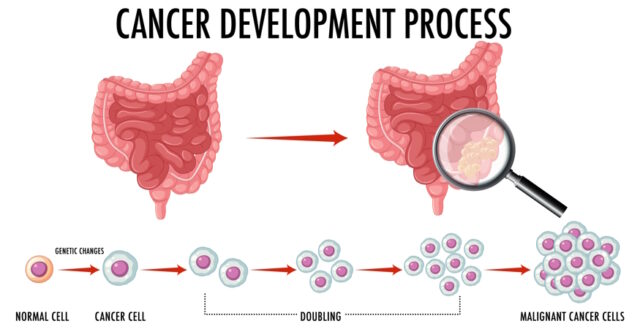
More younger adults are being diagnosed with colon cancer — also known as colorectal cancer — and at more advanced stages of the disease, says the American Cancer Society. It’s a trend experts have seen over the last decade.
Colon cancer symptoms usually don’t appear in early stages of the disease and when they do, they are often at an advanced stage. Dr. Johanna Chan, a Mayo Clinic gastroenterologist, says it’s important to recognize colon cancer symptoms and to seek medical attention if you experience them.
The U.S. Preventive Services Task Force and the American Cancer Society recommend patients of average risk start screening for colorectal cancer at age 45.
“Colon cancer is an incredibly common cancer, routinely one of the top five causes of cancer annually. And really anyone is at risk, at any age,” says Dr. Chan.
She says that age is more often under 55.
“We are seeing younger patients present with colon cancer. And unfortunately, they also tend to present at a more advanced stage,” says Dr. Chan.

Ongoing stomach discomfort and unexplained weight loss can be colon cancer symptoms.
“In fact, a lot of the warning symptoms such as rectal bleeding, anemia, change in bowel habits, these are very common symptoms that happen across all ranges of age groups,” Dr. Chan says.
Most young healthy patients with rectal bleeding won’t have colon cancer.
“It’s still on the possible list of diagnoses. And it’s really important that young patients seek care for any of these symptoms that occur,” says Dr. Chan.
Many of the colon cancer symptoms may be symptoms of other health issues so it recommended to talk with your health care team to find out the cause of the problem
Alaska Native, American Indian and African Americans have a greater risk of colon cancer than people of other races, says the American Cancer Society.
Factors that may increase your risk of colon cancer include:
- Family history
- Bowel disease
- Diabetes
- Obesity
- Environmental exposures like smoking or heavy alcohol use
Dr. Chan says certain specific factors such as family history may require a more individualized approach for colorectal cancer screening. She encourages patients to talk to their health care team to make sure they are individualizing recommendations for them.
Related posts:
- Can colorectal cancer be prevented?
- Mayo Clinic Minute: Who should be screened for colorectal cancer?
- Mayo Clinic Q and A: Polyps are possible culprits in colon cancer
- Mayo Clinic Minute: Symptoms of colorectal cancer
The post Mayo Clinic Minute: Why millennials should know colon cancer symptoms appeared first on Mayo Clinic News Network.
Disclaimer
Artificial Intelligence Disclosure & Legal Disclaimer
AI Content Policy.
To provide our readers with timely and comprehensive coverage, South Florida Reporter uses artificial intelligence (AI) to assist in producing certain articles and visual content.
Articles: AI may be used to assist in research, structural drafting, or data analysis. All AI-assisted text is reviewed and edited by our team to ensure accuracy and adherence to our editorial standards.
Images: Any imagery generated or significantly altered by AI is clearly marked with a disclaimer or watermark to distinguish it from traditional photography or editorial illustrations.
General Disclaimer
The information contained in South Florida Reporter is for general information purposes only.
South Florida Reporter assumes no responsibility for errors or omissions in the contents of the Service. In no event shall South Florida Reporter be liable for any special, direct, indirect, consequential, or incidental damages or any damages whatsoever, whether in an action of contract, negligence or other tort, arising out of or in connection with the use of the Service or the contents of the Service.
The Company reserves the right to make additions, deletions, or modifications to the contents of the Service at any time without prior notice. The Company does not warrant that the Service is free of viruses or other harmful components.












